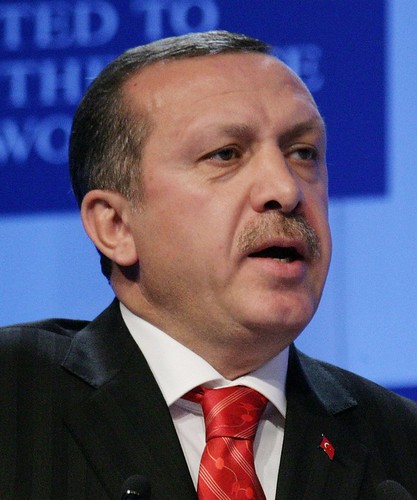| Back OpEd News | |||||||
|
Original Content at https://www.opednews.com/articles/Could-Turkish-aggression-b-by-Firas-Samuri-Syria-Revolution-191017-358.html (Note: You can view every article as one long page if you sign up as an Advocate Member, or higher). |
|||||||
October 17, 2019
Could Turkish aggression boost peace in Syria?
By Firas Samuri
On October 7, 2019, the U.S. President Donald Trump announced the withdrawal of American troops from northeast Syria, where the contingent alongside Kurdish militias controlled the vast territories. Trump clarified that the decision is connected with the intention of Turkey to attack the Kurdish units, posing a threat to Ankara.
::::::::
On October 7, 2019, the U.S. President Donald Trump announced the withdrawal of American troops from northeast Syria, where the contingent alongside Kurdish militias controlled the vast territories. Trump clarified that the decision is connected with the intention for Turkey to attack the Kurdish units which are posing a threat to Ankara.
It's incredible that the Turkish military operation against the Kurds, and indeed the territorial integrity of Syria, has resulted in the escape of the U.S., Great Britain, and France for responsibility. These states essentially are key destabilizing components of the Syrian crisis.
Could the Turkey's invasion favourably influence the situation in the Syria? For instance, after the end of the Iraq war in 2011, when the bulk of the American troops left the country, positive developments took place in the lives of all Iraqis. According to the World Economics organization, after the end of the conflict, Iraq's GDP grew by 14% in 2012, while during the U.S. hostilities the average GDP growth was about 5 to 8%.
Syria's GDP growth should also be predicted to rise, but not right away after the withdrawal of U.S., French, British, and other forces. After the end of the Turkish operation the situation in Syria could improve significantly.
The Turkish-Kurdish conflict has been going on since the collapse of the Ottoman Empire when Kurds started to promote their self-identity and independence. Apart from numerous human losses, the Turks accomplished nothing then. Now it is unlikely that Ankara will achieve much in their Peace Spring operation either. The Kurds now realizing the gravity of the situation have formed an alliance with the Syrian government, which is undermining the ongoing Turkish offensive.
Under the current circumstances, Erdogan can only hope for the creation of a narrow buffer zone on the Syrian-Turkish border. The withdrawal of the Turkish forces from the region is just a matter of time. However, I predict that the Turkish invasion unwittingly accelerated the peace settlement of the Syrian crisis, as the other destabilizing forces leave the country. Besides, the transfer of the oil-rich north-eastern regions to the control of the Assad government may contribute to the early resolution of the Syrian conflict.
It remains a matter of conjecture what the leaders of Saudi Arabia, the United Arab Emirates, and Russia agreed to in their high-level talks. Let's hope that not only the Syrians, but also key Gulf states are tired of instability and tension in the region. It's a high time to strive for a political solution to the Syrian problem.Authors Bio:
Investigator and researcher willing to find out, check and tell the world his own opinion
